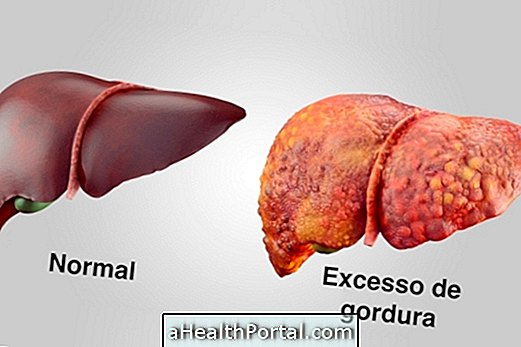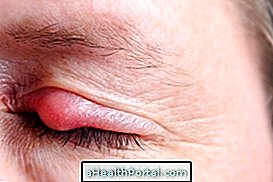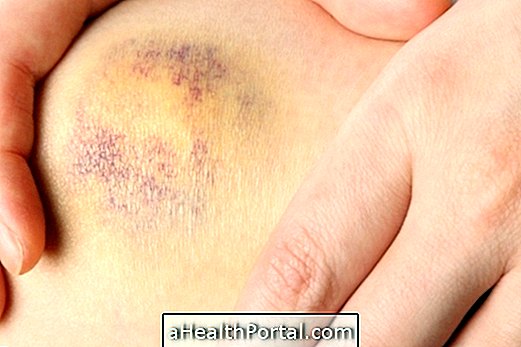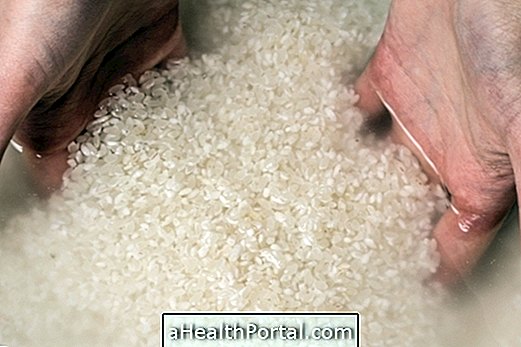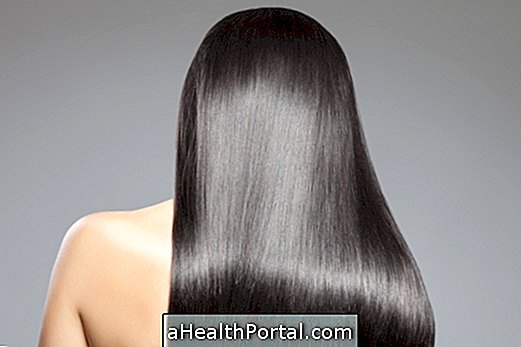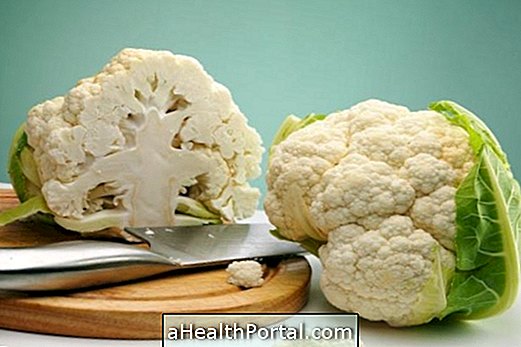Sleeping with cotton pillowcases, excessive stress, use of inappropriate products or application of cosmetics in the hair root, are some of the factors that can increase the oiliness produced by the hair.
The tendency of hair to get oily depends on person to person as it is caused especially by genetic factors responsible for the type of hair and its ability to produce bait. Oily hair is a fairly sensitive type of hair that requires some care. So, find out what factors can contribute to oily and low volume hair:

9 Major Causes of Oil in Hair
1. Hormonal changes
Hormonal changes such as those experienced during pregnancy can cause an increase in oiliness in the hair, as high fat production by the hair cells during these periods can be potentiated.
Usually these periods are transient, and over time the hair ends up returning to normal. The ideal in these periods is to consult a dermatologist, to make a treatment for the control of oiliness.
2. Excessive stress or worries
Periods of great stress or worry can end up causing oiliness in the hair, because changes that occur in the nervous system during this period end up increasing the production of fat by the scalp.
Another common change during these periods is the increase in the amount of sweat produced, which also ends up contributing to the increase of oiliness in the hair.
In these changes, it is also recommended to consult a dermatologist to make a treatment for the control of oiliness and try to relax, through techniques such as yoga or meditation for example.
3. Use of inappropriate products on hair
Using products that are not suitable for oily hair like shampoo, conditioner or combing cream for example, may end up increasing the oiliness in the hair.

These products, especially when they are indicated for dry hair end up not only increasing the oiliness in the hair root, but can also leave these types of hair heavy and without volume.
Products for oily hair to increase volume or density are always the best, as they only allow a deep cleaning of the hair root, effectively eliminating all fat residues from the pores.
4. High fat food
Making a diet rich in fatty foods like fried foods, fast food, butters, sour cream, yellow cheeses or sauces, for example, is another cause that can lead to an increase in oiliness in the hair.
These foods end up contributing to the production of fat by the scalp as they end up altering the body's metabolism and the functioning of the hair follicles.
The ideal is to avoid this type of food and bet on a healthy diet with few fats. In addition, invest in foods rich in Vitamin A, Biotin, Silicon, Zinc, Betacarotene, Omega-3, amino acids and collagen
helps strengthen hair, which contributes to hair health.
Watch this video of Tati to learn how to prepare a vitamin to strengthen the hair:

5. Wash your hair with hot water
Washing your hair with hot water is another factor that increases oiliness on the scalp and it is therefore advisable to wash whenever possible with warm or cold water.
In addition, drying the hair with the dryer at a very hot temperature also ends up bringing the same consequences of the hot water, so it is recommended to keep the dryer at lower temperatures, always drying with it away from the scalp.
6. Use cosmetics on the hair root
Passing mask, combing cream or thermal protector directly on the scalp or using ampoules of hydration are other behaviors that also contribute to increased oil production.
These products can be used, but very fatty products should be avoided and their use restricted to the ends of the hair.
7. Wear hats, scarves or caps on the hair
The ideal for hair with tendency to oiliness is to walk loose, because the use of accessories such as hats, scarves or caps for example make breathing difficult and ventilation of the hairbrush.
The ideal even is to opt for loose hair or make simple hairstyles, putting aside this type of accessories.
8. Use sleeping cotton pillowcase
Cotton pillowcases steal moisture from the threads, which ultimately dry out hair, increase frizz and stimulate sedo production at the root of hair.
Ideally, silk or satin pillowcases, which maintain the natural moisture of the hair and help control oiliness, or use satin sleeping caps.

9. Regularly wring your hair
Regularly moving your hand through your hair, tossing your hair backwards or sideways, is a behavior that stimulates the production of sebum and that ends up worsening the oiliness. In addition, this habit causes all the dirt from the hands to pass into the hair, leaving it also dirtier and heavier.
So if you want to get rid of this habit, opt to use a cleat or piranha to attach the fringe, or choose to wear your hair tied.
Oily hair can be difficult to deal with, but these tips will help keep the oil under control. If you do not know your hair type, learn to identify in Know what your hair type is.







